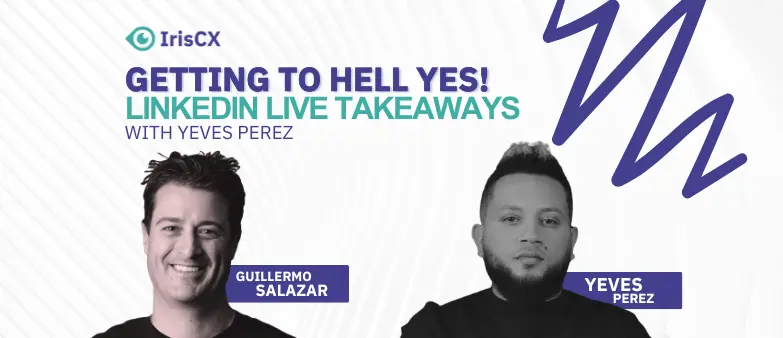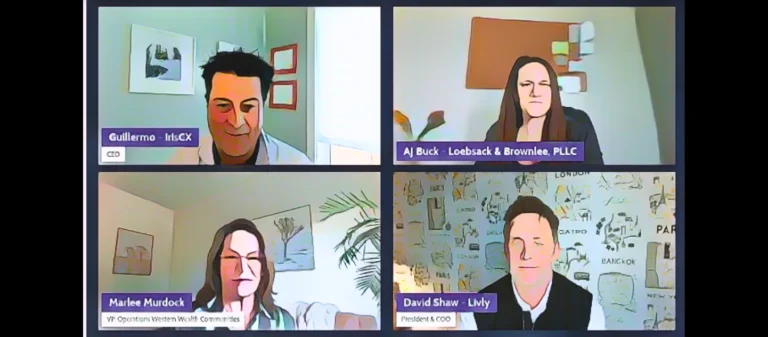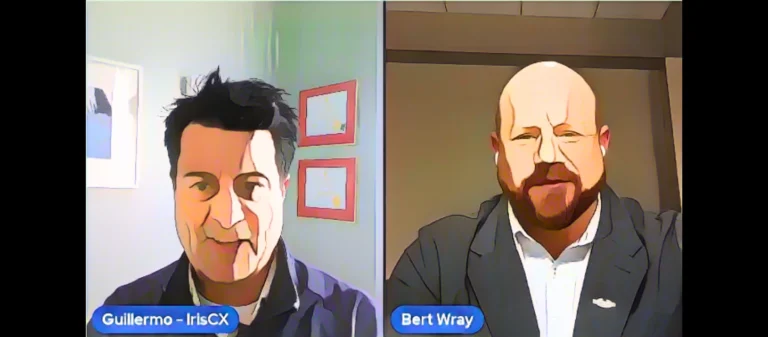Selling isn’t just about getting a polite “maybe.” For Yeves Perez, CEO of Workbnb, and a pioneer in Workforce Housing as a Service (WHaaS), success means creating an emphatic “Hell Yes!” Yeves has transformed the way companies approach workforce housing by leveraging persistence, strategy, and a deep understanding of his customers. Here’s how he does it and the lessons he’s learned along the way.
The Journey to Reinvention
Yeves Perez knows reinvention well. As CEO of Workbnb, Yeves leads a company that makes workforce housing smarter, faster, and more efficient. With a strong background in marketing, advertising, and brand architecture, he co-founded Workbnb to address a critical gap: providing high-quality, temporary housing for workers on the move.Yeves started humbly. In his early 20s, he worked at Wells Fargo, handling customer calls and mastering communication under pressure. He moved into car sales, a tough field that taught him resilience and adaptability. “I treated sales as a sport,” Yeves recalls. “I trained to get better, built tough skin, and learned how to win.” These experiences laid the foundation for his future success.The turning point came when his mother, a small Airbnb operator, faced a unique challenge. A company relocating to Reno needed extended housing for its workers but struggled to find suitable accommodations. Yeves stepped in and helped his mother reposition her properties as “workforce rentals,” a term he coined. This small pivot boosted revenue by 300% in eight months. The success convinced Yeves that this niche market needed innovation.
The Challenges in Workforce Housing
Despite his early success with his mother’s business, Yeves quickly sees the systemic challenges in workforce housing. Traditional short-term rental platforms like Airbnb fail to serve workforce travelers effectively.“Corporate housing relies on an outdated model that hasn’t evolved to meet real-world needs,” Yeves explains. “That’s why there’s so much opportunity for innovation.” “It offers only apartments and doesn’t meet the needs of workers who require flexibility and specific accommodations.” Issues like credit checks, rigid booking systems, and mismatched customer profiles highlight glaring inefficiencies.The pandemic adds another layer of complexity. As COVID-19 spreads, vacation rentals sit empty, while essential workers still travel. Recognizing the opportunity, Yeves pivots to essential workforce housing, keeping properties occupied. By marketing to “essential workers,” he ensures revenue continues flowing while others falter.
Crafting the ‘Hell Yes’ Strategy
Yeves’ breakthrough comes when he shifts from solving problems to creating enthusiastic customer buy-in. His “Hell Yes” strategy revolves around knowing customers, building community, and asking the right questions.
Understand Your Customer
Yeves emphasizes, “Understanding your ideal customer profile (ICP) is key. You need to step into their shoes to truly grasp their challenges.” “You need to know their pain points, frustrations, and what keeps them up at night,” he says. For workforce travelers, these include inconsistent housing quality, lack of security, and rigid terms.To uncover these insights, Yeves engages directly with customers through surveys, social media, and live events. He collects stories of workers facing theft at motels or dealing with inflexible leases. These narratives become the foundation of Workbnb’s value proposition.
Build Community First
Before launching the Workbnb app, Yeves focused on building a community. He created a Facebook group called the “Workbnb Coalition,” where real estate professionals and potential customers shared challenges and ideas. By fostering dialogue, Yeves gained invaluable insights and built trust.“Platforms like Facebook and LinkedIn let us amplify real stories,” Yeves shares. “When you connect people to the story, you create a movement.” “We want people to feel heard and understood before introducing a solution.” This approach turned potential customers into advocates.
Ask the Right Questions
One of Yeves’ most effective tools is the “priority question”: “On a scale of 1 to 10, how critical is solving this problem to you?” A score of seven or higher signals strong interest—a starting point for a “Hell Yes” sale.“If someone says nine or ten, you’ve hit gold,” Yeves says. “It’s not just about solving a problem; it’s about tapping into urgency and showing you’re the best solution.”
The Movement to ‘Hell Yes’
With Workbnb, Yeves turns his “Hell Yes” philosophy into a scalable business model. The platform addresses workforce travelers’ needs, offering extended bookings, flexible payments, and tailored accommodations.
Create Emotional Buy-In
Yeves believes successful sales require emotional resonance. “We frame Workbnb as a movement,” Yeves says. “It’s about changing an entire industry, not just building a product.” “It’s not just a product; it’s a shift in the industry.” By positioning Workbnb as a disruptor, Yeves inspires customers to feel part of something bigger.
Deliver Tangible Results
The results prove the strategy works. Workbnb scales rapidly, becoming a trusted partner for companies needing workforce housing. By addressing problems ignored by competitors, Yeves carves out a unique market space. Workbnb now serves major clients like construction firms and even the NFL, providing housing for events like Super Bowl LVIII in Las Vegas.
Key Takeaways
Know Your Customer
Deeply understanding customer needs is non-negotiable. Yeves listens, empathizes, and tailors solutions to address specific pain points. “The better you understand their challenges,” Yeves says, “the stronger your ability to deliver an irresistible solution.”
Make it a Movement
People want to feel part of something bigger. By framing Workbnb as a movement, Yeves creates emotional buy-in that inspires trust and loyalty.
Ask the Right Questions
Effective selling starts with asking the right questions. The “priority question” helps gauge urgency and ensures you focus on customers ready to say “Hell Yes.”
Conclusion
Yeves Perez’s journey from call center employee to visionary CEO shows the power of persistence, creativity, and customer-centric thinking. His “Hell Yes” philosophy transforms workforce housing and offers a blueprint for creating enthusiastic, loyal customers. Whether you’re selling a product, service, or idea, Yeves’ approach teaches invaluable lessons for getting to “Hell Yes.”
Listen to the “Getting to Hell Yes!” podcast on apple or spotify here:
https://open.spotify.com/show/4TY87ToVuLK7eqkZZvZA5T
https://podcasts.apple.com/gm/podcast/getting-to-hell-yes/id1772602174




